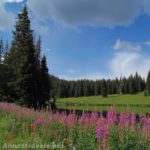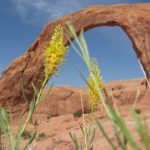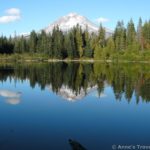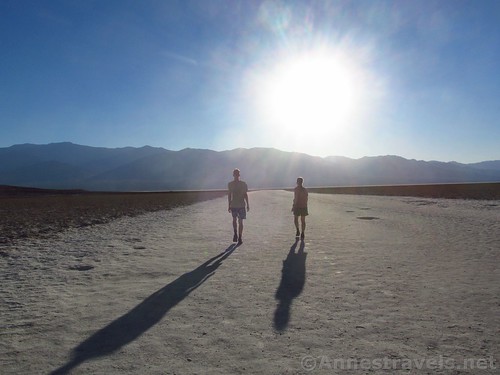
Badwater Basin at sunset, Death Valley National Park, California
It is absolutely vital to be prepared when we go out into the wilderness. Some parks require specific tools and preparation – for example, a shovel and a bucket; or to carry a certain amount of water per person; or that everyone in the group must have their own flashlight. Many others give suggestions – such as how much water to carry with you on a hike, to take salty protein snacks, or to wear sunscreen and how to deal with altitude sickness. The park service knows that if you are prepared, you are much less likely to need a rescue.
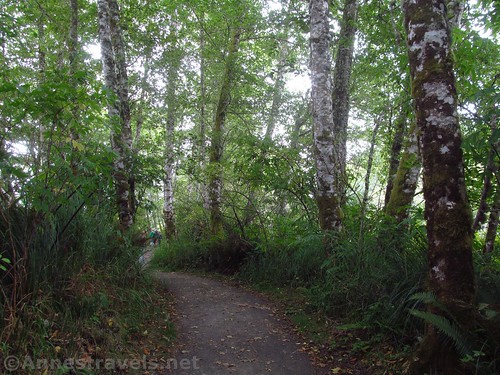
Netul Landing Trail, Lewis & Clark National Historical Park, Oregon
I read an article about a year ago about a man who became lost in the snow high in the Sierras near Yosemite. Unable to hike back to the parking area, he stayed inside his tent until rescuers found him. The SAR was quoted as saying that it was his preparedness that kept him alive and non-hypothermic for nearly a week in winter conditions.
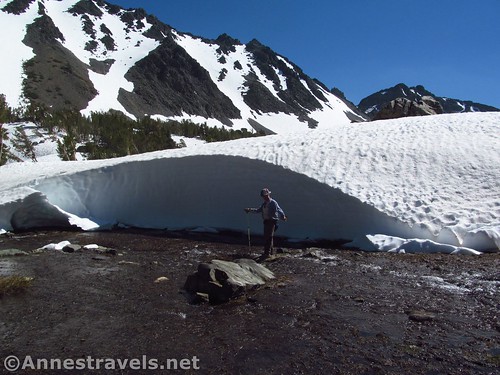
Snow-backed stream crossing near the Virginia Lakes Trail, California
Everyone prepares for some extent for a hike – they put on their sneakers or hiking boots, wear clothing appropriate to the weather / terrain, bring sufficient food and water, and hopefully have the tools, maps, etc. that will get them through and make their hike enjoyable. Others are even more preparation-conscious and work their muscles – some backpackers climb stairs carrying 40lb. bags of salt in their packs to get ready for a big climb.
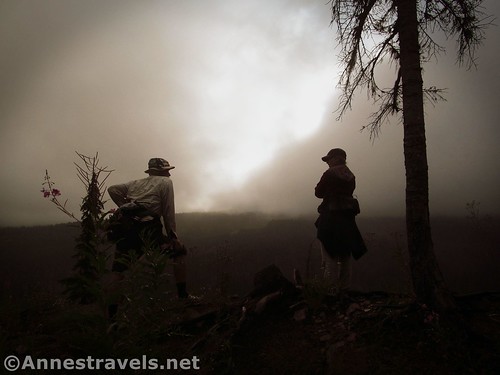
Discussing current conditions on the Mazama Trail in Mount Hood National Forest, Oregon
Preparation is especially key in unfamiliar territory. You have only a vague idea of what to expect, so having proper tools and food and clothing could mean the difference between success and failure.
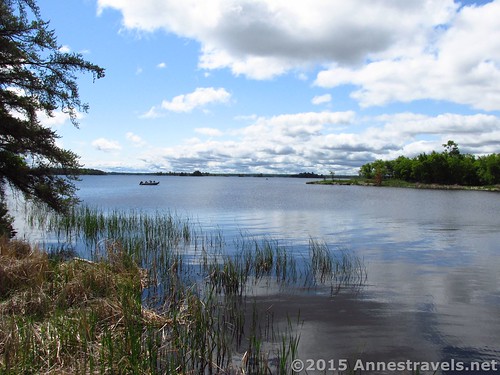
Peaceful Kabetogama Lake in Voyageurs National Park, Minnesota
We have had our fair share of near-disasters in the wilderness – usually they came about because we weren’t prepared for the conditions we found ourselves in. It’s caused me to pack for the unexpected, which usually means bringing more food and especially more water than we’ll need. It’s preparation like this that has kept us alive a couple notable times on long hikes.
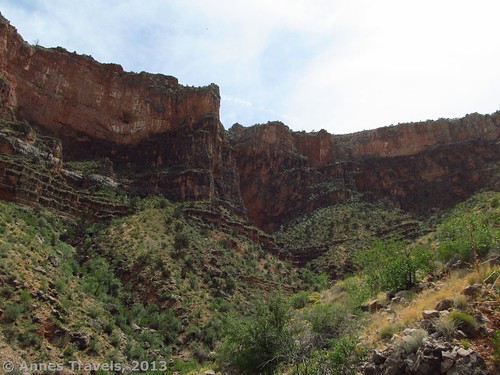
The East Horseshoe Mesa Trail was a near disaster in the Grand Canyon, Arizona
In the spiritual sense, preparedness is no less vital than on a hike in the wilderness. We may not know the conditions we will be walking into and through in the days and years ahead, so it’s difficult to prepare specifically (“Well, if I had known that I would be asked to teach on the minor prophets, I might have studied them harder last year!” or “If I had realized that my dear friend would go through this, I would have prepared to be more of a comfort to them.”)
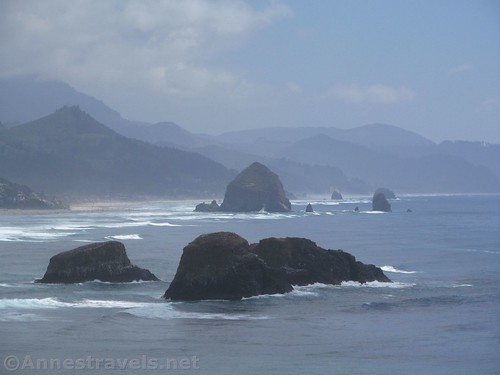
Haystack Rock from Ecola Point, Oregon
But there is one way that we can prepare for anything that comes along: we can spend time with God/Jesus/the Holy Spirit, getting to know Him better, to know His ways and how He sees all the situations you are in. That connection to the Trinity can mean the difference between stress and peace, between frozen with fear and walking boldly, between saying the right or wrong thing to a dear friend or family member, between going down a road that looks good but is not and taking the narrower road that leads to life.
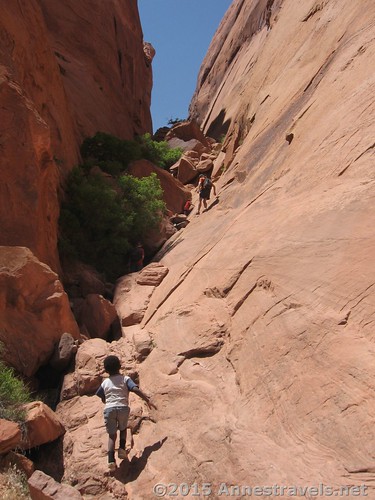
Scrambling back up Hole in the Rock in Glen Canyon National Recreation Area, Utah
I’ve been here – there have been times I thanked God I had been preparing even when I did not know what I was preparing for, and times when I wished I had prepared better for the current situation (it should be noted that God often prepares us for things we don’t see coming – and then suddenly we figure out why He was leading us in this preparation). Either way, whether I was prepared or not, I had the connection to the One Who is always prepared – Who is the preparedness we need in every situation.
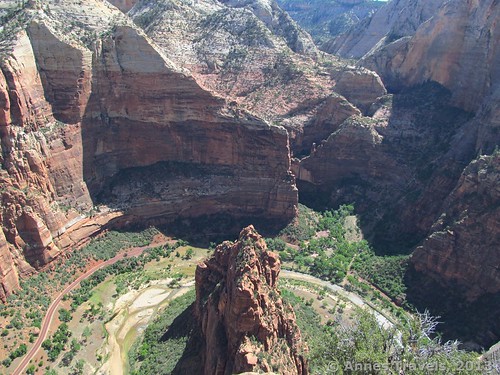
Horseshoe bend around Angel’s Landing in Zion National Park, Utah
Even with preparedness we still have choices, and we may not feel very prepared. The unexpected has the tendency to strip away our feelings of being prepared and make us feel very vulnerable. In that situation, we can try to grasp for control – or we can rely on God’s preparedness. These things aren’t a surprise to God.
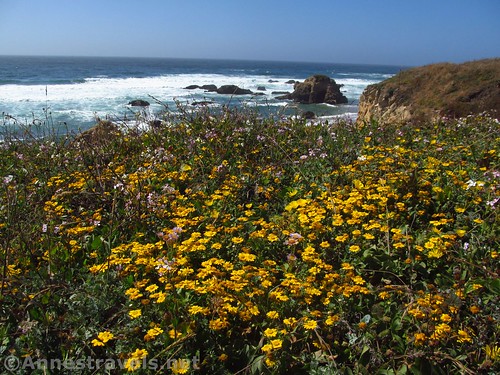
Wildflowers along the trail north from Glass Beach, California
And so for hikes, we prepare by working out our muscles and collecting food, water, clothing, and maps. In our Christian lives, we prepare by focusing on our relationship with Christ. Both are vital for survival in the days ahead – or at least, we’ll enjoy the journey more if we are prepared.

